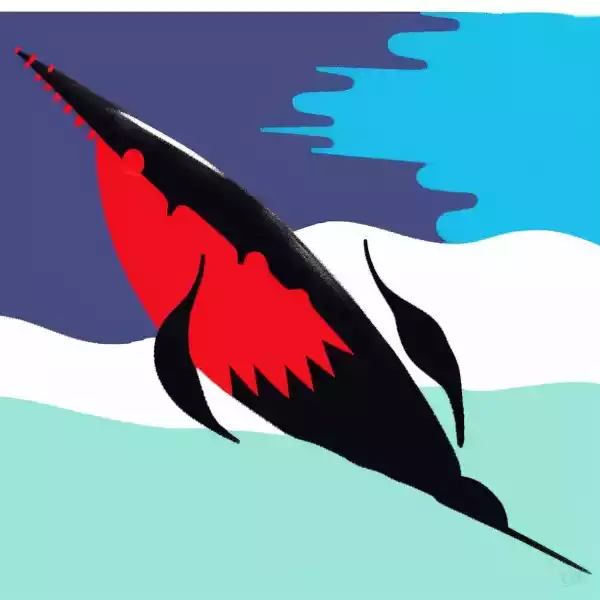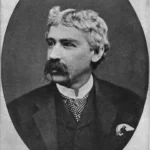 | |
Captain Jim’s Friend | |
| Author | Bret Harte |
|---|---|
| Published |
1864
|
| Language | English |
| Nationality | American |
| Genre | Western |
1864 Short Story
Captain Jim’s Friend
Captain Jim’s Friend is an English Western short story by American writer Bret Harte. It was first published in 1864.
Captain Jim’s Friend
by Bret Harte
I.
Hardly one of us, I think, really believed in the auriferous probabilities of Eureka Gulch. Following a little stream, we had one day drifted into it, very much as we imagined the river gold might have done in remoter ages, with the difference that WE remained there, while the river gold to all appearances had not. At first it was tacitly agreed to ignore this fact, and we made the most of the charming locality, with its rare watercourse that lost itself in tangled depths of manzanita and alder, its laurel-choked pass, its flower-strewn hillside, and its summit crested with rocking pines.
“You see,” said the optimistic Rowley, water’s the main thing after all. If we happen to strike river gold, thar’s the stream for washing it; if we happen to drop into quartz–and that thar rock looks mighty likely–thar ain’t a more natural-born site for a mill than that right bank, with water enough to run fifty stamps. That hillside is an original dump for your tailings, and a ready found inclined road for your trucks, fresh from the hands of Providence; and that road we’re kalkilatin’ to build to the turnpike will run just easy along that ridge.”
Later, when we were forced to accept the fact that finding gold was really the primary object of a gold-mining company, we still remained there, excusing our youthful laziness and incertitude by brilliant and effective sarcasms upon the unremunerative attractions of the gulch. Nevertheless, when Captain Jim, returning one day from the nearest settlement and post-office, twenty miles away, burst upon us with “Well, the hull thing’ll be settled now, boys; Lacy Bassett is coming down yer to look round,” we felt considerably relieved.
And yet, perhaps, we had as little reason for it as we had for remaining there. There was no warrant for any belief in the special divining power of the unknown Lacy Bassett, except Captain Jim’s extravagant faith in his general superiority, and even that had always been a source of amused skepticism to the camp. We were already impatiently familiar with the opinions of this unseen oracle; he was always impending in Captain Jim’s speech as a fragrant memory or an unquestioned authority. When Captain Jim began, “Ez Lacy was one day tellin’ me,” or, “Ez Lacy Bassett allows,” or more formally, when strangers were present, “Ez a partickler friend o’ mine, Lacy Bassett–maybe ez you know him– sez,” the youthful and lighter members of the Eureka Mining Company glanced at each other in furtive enjoyment. Nevertheless no one looked more eagerly forward to the arrival of this apocryphal sage than these indolent skeptics. It was at least an excitement; they were equally ready to accept his condemnation of the locality or his justification of their original selection.
He came. He was received by the Eureka Mining Company lying on their backs on the grassy site of the prospective quartz mill, not far from the equally hypothetical “slide” to the gulch. He came by the future stage road–at present a thickset jungle of scrub-oaks and ferns. He was accompanied by Captain Jim, who had gone to meet him on the trail, and for a few moments all critical inspection of himself was withheld by the extraordinary effect he seemed to have upon the faculties of his introducer.
Anything like the absolute prepossession of Captain Jim by this stranger we had never imagined. He approached us running a little ahead of his guest, and now and then returning assuringly to his side with the expression of a devoted Newfoundland dog, which in fluffiness he generally resembled. And now, even after the introduction was over, when he made a point of standing aside in an affectation of carelessness, with his hands in his pockets, the simulation was so apparent, and his consciousness and absorption in his friend so obvious, that it was a relief to us to recall him into the conversation.
As to our own first impressions of the stranger, they were probably correct. We all disliked him; we thought him conceited, self- opinionated, selfish, and untrustworthy. But later, reflecting that this was possibly the result of Captain Jim’s over-praise, and finding none of these qualities as yet offensively opposed to our own selfishness and conceit, we were induced, like many others, to forget our first impressions. We could easily correct him if he attempted to impose upon US, as he evidently had upon Captain Jim. Believing, after the fashion of most humanity, that there was something about US particularly awe-inspiring and edifying to vice or weakness of any kind, we good-humoredly yielded to the cheap fascination of this showy, self-saturated, over-dressed, and underbred stranger. Even the epithet of “blower” as applied to him by Rowley had its mitigations; in that Trajan community a bully was not necessarily a coward, nor florid demonstration always a weakness.
His condemnation of the gulch was sweeping, original, and striking. He laughed to scorn our half-hearted theory of a gold deposit in the bed and bars of our favorite stream. We were not to look for auriferous alluvium in the bed of any present existing stream, but in the “cement” or dried-up bed of the original prehistoric rivers that formerly ran parallel with the present bed, and which–he demonstrated with the stem of Pickney’s pipe in the red dust–could be found by sinking shafts at right angles with the stream. The theory was to us, at that time, novel and attractive. It was true that the scientific explanation, although full and gratuitous, sounded vague and incoherent. It was true that the geological terms were not always correct, and their pronunciation defective, but we accepted such extraordinary discoveries as “ignus fatuus rock,” “splendiferous drift,” “mica twist” (recalling a popular species of tobacco), “iron pirates,” and “discomposed quartz” as part of what he not inaptly called a “tautological formation,” and were happy. Nor was our contentment marred by the fact that the well-known scientific authority with whom the stranger had been intimate,–to the point of “sleeping together” during a survey,– and whom he described as a bent old man with spectacles, must have aged considerably since one of our party saw him three years before as a keen young fellow of twenty-five. Inaccuracies like those were only the carelessness of genius. “That’s my opinion, gentlemen,” he concluded, negligently rising, and with pointed preoccupation whipping the dust of Eureka Gulch from his clothes with his handkerchief, “but of course it ain’t nothin’ to me.”
Captain Jim, who had followed every word with deep and trustful absorption, here repeated, “It ain’t nothing to him, boys,” with a confidential implication of the gratuitous blessing we had received, and then added, with loyal encouragement to him, “It ain’t nothing to you, Lacy, in course,” and laid his hand on his shoulder with infinite tenderness.
We, however, endeavored to make it something to Mr. Lacy Bassett. He was spontaneously offered a share in the company and a part of Captain Jim’s tent. He accepted both after a few deprecating and muttered asides to Captain Jim, which the latter afterwards explained to us was the giving up of several other important enterprises for our sake. When he finally strolled away with Rowley to look over the gulch, Captain Jim reluctantly tore himself away from him only for the pleasure of reiterating his praise to us as if in strictest confidence and as an entirely novel proceeding.
“You see, boys, I didn’t like to say it afore HIM, we bein’ old friends; but, between us, that young feller ez worth thousands to the camp. Mebbee,” he continued with grave naivete, “I ain’t said much about him afore, mebbee, bein’ old friends and accustomed to him–you know how it is, boys,–I haven’t appreciated him as much ez I ought, and ez you do. In fact, I don’t ezakly remember how I kem to ask him down yer. It came to me suddent, one day only a week ago Friday night, thar under that buckeye; I was thinkin’ o’ one of his sayins, and sez I–thar’s Lacy, if he was here he’d set the hull thing right. It was the ghost of a chance my findin’ him free, but I did. And there HE is, and yer WE are settled! Ye noticed how he just knocked the bottom outer our plans to work. Ye noticed that quick sort o’ sneerin’ smile o’ his, didn’t ye–that’s Lacy! I’ve seen him knock over a heap o’ things without sayin’ anythin’–with jist that smile.”
It occurred to us that we might have some difficulty in utilizing this smile in our present affairs, and that we should have probably preferred something more assuring, but Captain Jim’s faith was contagious.
“What is he, anyway?” asked Joe Walker lazily.
“Eh!” echoed Captain Jim in astonishment. “What is Lacy Bassett?”
“Yes, what is he?” repeated Walker.
“Wot IS–he?”
“Yes.”
“I’ve knowed him now goin’ as four year,” said Captain Jim with slow reflective contentment. “Let’s see. It was in the fall o’ ’54 I first met him, and he’s allus been the same ez you see him now.”
“But what is his business or profession? What does he do?”
Captain Jim looked reproachfully at his questioner.
“Do?” he repeated, turning to the rest of us as if disdaining a direct reply. “Do?–why, wot he’s doin’ now. He’s allus the same, allus Lacy Bassett.”
Howbeit, we went to work the next day under the superintendence of the stranger with youthful and enthusiastic energy, and began the sinking of a shaft at once. To do Captain Jim’s friend justice, for the first few weeks he did not shirk a fair share of the actual labor, replacing his objectionable and unsuitable finery with a suit of serviceable working clothes got together by general contribution of the camp, and assuring us of a fact we afterwards had cause to remember, that “he brought nothing but himself into Eureka Gulch.” It may be added that he certainly had not brought money there, as Captain Jim advanced the small amounts necessary for his purchases in the distant settlement, and for the still smaller sums he lost at cards, which he played with characteristic self-sufficiency.
Meantime the work in the shaft progressed slowly but regularly. Even when the novelty had worn off and the excitement of anticipation grew fainter, I am afraid that we clung to this new form of occupation as an apology for remaining there; for the fascinations of our vagabond and unconventional life were more potent than we dreamed of. We were slowly fettered by our very freedom; there was a strange spell in this very boundlessness of our license that kept us from even the desire of change; in the wild and lawless arms of nature herself we found an embrace as clinging, as hopeless and restraining, as the civilization from which we had fled. We were quite content after a few hours’ work in the shaft to lie on our backs on the hillside staring at the unwinking sky, or to wander with a gun through the virgin forest in search of game scarcely less vagabond than ourselves. We indulged in the most extravagant and dreamy speculations of the fortune we should eventually discover in the shaft, and believed that we were practical. We broke our “saleratus bread” with appetites unimpaired by restlessness or anxiety; we went to sleep under the grave and sedate stars with a serene consciousness of having fairly earned our rest; we awoke the next morning with unabated trustfulness, and a sweet obliviousness of even the hypothetical fortunes we had perhaps won or lost at cards overnight. We paid no heed to the fact that our little capital was slowly sinking with the shaft, and that the rainy season–wherein not only “no man could work,” but even such play as ours was impossible–was momentarily impending.
In the midst of this, one day Lacy Bassett suddenly emerged from the shaft before his “shift” of labor was over with every sign of disgust and rage in his face and inarticulate with apparent passion. In vain we gathered round him in concern; in vain Captain Jim regarded him with almost feminine sympathy, as he flung away his pick and dashed his hat to the ground.
“What’s up, Lacy, old pard? What’s gone o’ you?” said Captain Jim tenderly.
“Look!” gasped Lacy at last, when every eye was on him, holding up a small fragment of rock before us and the next moment grinding it under his heel in rage. “Look! To think that I’ve been fooled agin by this blanked fossiliferous trap–blank it! To think that after me and Professor Parker was once caught jist in this way up on the Stanislaus at the bottom of a hundred-foot shaft by this rotten trap–that yer I am–bluffed agin!”
There was a dead silence; we looked at each other blankly.
“But, Bassett,” said Walker, picking up a part of the fragment, “we’ve been finding this kind of stuff for the last two weeks.”
“But how?” returned Lacy, turning upon him almost fiercely. “Did ye find it superposed on quartz, or did you find it NOT superposed on quartz? Did you find it in volcanic drift, or did ye find it in old red-sandstone or coarse illuvion? Tell me that, and then ye kin talk. But this yer blank fossiliferous trap, instead o’ being superposed on top, is superposed on the bottom. And that means”–
“What?” we all asked eagerly.
“Why–blank it all–that this yer convulsion of nature, this prehistoric volcanic earthquake, instead of acting laterally and chuckin’ the stream to one side, has been revolutionary and turned the old river-bed bottom-side up, and yer d–d cement hez got half the globe atop of it! Ye might strike it from China, but nowhere else.”
We continued to look at one another, the older members with darkening faces, the younger with a strong inclination to laugh. Captain Jim, who had been concerned only in his friend’s emotion, and who was hanging with undisguised satisfaction on these final convincing proofs of his superior geological knowledge, murmured approvingly and confidingly, “He’s right, boys! Thar ain’t another man livin’ ez could give you the law and gospil like that! Ye can tie to what he says. That’s Lacy all over.”
Two weeks passed. We had gathered, damp and disconsolate, in the only available shelter of the camp. For the long summer had ended unexpectedly to us; we had one day found ourselves caught like the improvident insect of the child’s fable with gauzy and unseasonable wings wet and bedraggled in the first rains, homeless and hopeless. The scientific Lacy, who lately spent most of his time as a bar- room oracle in the settlement, was away, and from our dripping canvas we could see Captain Jim returning from a visit to him, slowly plodding along the trail towards us.
“It’s no use, boys,” said Rowley, summarizing the result of our conference, “we must speak out to him, and if nobody else cares to do it I will. I don’t know why we should be more mealy-mouthed than they are at the settlement. They don’t hesitate to call Bassett a dead-beat, whatever Captain Jim says to the contrary.”
The unfortunate Captain Jim had halted irresolutely before the gloomy faces in the shelter. Whether he felt instinctively some forewarning of what was coming I cannot say. There was a certain dog-like consciousness in his eye and a half-backward glance over his shoulder as if he were not quite certain that Lacy was not following. The rain had somewhat subdued his characteristic fluffiness, and he cowered with a kind of sleek storm-beaten despondency over the smoking fire of green wood before our tent.
Nevertheless, Rowley opened upon him with a directness and decision that astonished us. He pointed out briefly that Lacy Bassett had been known to us only through Captain Jim’s introduction. That he had been originally invited there on Captain Jim’s own account, and that his later connection with the company had been wholly the result of Captain Jim’s statements. That, far from being any aid or assistance to them, Bassett had beguiled them by apocryphal knowledge and sham scientific theories into an expensive and gigantic piece of folly. That, in addition to this, they had just discovered that he had also been using the credit of the company for his own individual expenses at the settlement while they were working on his d–d fool shaft–all of which had brought them to the verge of bankruptcy. That, as a result, they were forced now to demand his resignation–not only on their general account, but for Captain Jim’s sake–believing firmly, as they did, that he had been as grossly deceived in his friendship for Lacy Bassett as THEY were in their business relations with him.
Instead of being mollified by this, Captain Jim, to our greater astonishment, suddenly turned upon the speaker, bristling with his old canine suggestion.
“There! I said so! Go on! I’d have sworn to it afore you opened your lips. I knowed it the day you sneaked around and wanted to know wot his business was! I said to myself, Cap, look out for that sneakin’ hound Rowley, he’s no friend o’ Lacy’s. And the day Lacy so far demeaned himself as to give ye that splendid explanation o’ things, I watched ye; ye didn’t think it, but I watched ye. Ye can’t fool me! I saw ye lookin’ at Walker there, and I said to myself, Wot’s the use, Lacy, wot’s the use o’ your slingin’ them words to such as THEM? Wot do THEY know? It’s just their pure jealousy and ignorance. Ef you’d come down yer, and lazed around with us and fallen into our common ways, you’d ha’ been ez good a man ez the next. But no, it ain’t your style, Lacy, you’re accustomed to high-toned men like Professor Parker, and you can’t help showing it. No wonder you took to avoidin’ us; no wonder I’ve had to foller you over the Burnt Wood Crossin’ time and again, to get to see ye. I see it all now: ye can’t stand the kempany I brought ye to! Ye had to wipe the slum gullion of Eureka Gulch off your hands, Lacy”– He stopped, gasped for breath, and then lifted his voice more savagely, “And now, what’s this? Wot’s this hogwash? this yer lyin’ slander about his gettin’ things on the kempany’s credit? Eh, speak up, some of ye!”
We were so utterly shocked and stupefied at the degradation of this sudden and unexpected outburst from a man usually so honorable, gentle, self-sacrificing, and forgiving, that we forgot the cause of it and could only stare at each other. What was this cheap stranger, with his shallow swindling tricks, to the ignoble change he had worked upon the man before us. Rowley and Walker, both fearless fighters and quick to resent an insult, only averted their saddened faces and turned aside without a word.
“Ye dussen’t say it! Well, hark to me then,” he continued with white and feverish lips. “I put him up to helpin’ himself. I told him to use the kempany’s name for credit. Ye kin put that down to ME. And when ye talk of HIS resigning, I want ye to understand that I resign outer this rotten kempany and TAKE HIM WITH ME! Ef all the gold yer lookin’ for was piled up in that shaft from its bottom in hell to its top in the gulch, it ain’t enough to keep me here away from him! Ye kin take all my share–all MY rights yer above ground and below it–all I carry,”–he threw his buckskin purse and revolver on the ground,–“and pay yourselves what you reckon you’ve lost through HIM. But you and me is quits from to- day.”
He strode away before a restraining voice or hand could reach him. His dripping figure seemed to melt into the rain beneath the thickening shadows of the pines, and the next moment he was gone. From that day forward Eureka Gulch knew him no more. And the camp itself somehow melted away during the rainy season, even as he had done.
II.
Three years had passed. The pioneer stage-coach was sweeping down the long descent to the pastoral valley of Gilead, and I was looking towards the village with some pardonable interest and anxiety. For I carried in my pocket my letters of promotion from the box seat of the coach–where I had performed the functions of treasure messenger for the Excelsior Express Company–to the resident agency of that company in the bucolic hamlet before me. The few dusty right-angled streets, with their rigid and staringly new shops and dwellings, the stern formality of one or two obelisk- like meeting-house spires, the illimitable outlying plains of wheat and wild oats beyond, with their monotony scarcely broken by skeleton stockades, corrals, and barrack-looking farm buildings, were all certainly unlike the unkempt freedom of the mountain fastnesses in which I had lately lived and moved. Yuba Bill, the driver, whose usual expression of humorous discontent deepened into scorn as he gathered up his reins as if to charge the village and recklessly sweep it from his path, indicated a huge, rambling, obtrusively glazed, and capital-lettered building with a contemptuous flick of his whip as we passed. “Ef you’re kalkilatin’ we’ll get our partin’ drink there you’re mistaken. That’s wot they call a TEMPERANCE HOUSE–wot means a place where the licker ye get underhand is only a trifle worse than the hash ye get above-board. I suppose it’s part o’ one o’ the mysteries o’ Providence that wharever you find a dusty hole like this–that’s naturally THIRSTY–ye run agin a ‘temperance’ house. But never YOU mind! I shouldn’t wonder if thar was a demijohn o’ whiskey in the closet of your back office, kept thar by the feller you’re relievin’–who was a white man and knew the ropes.”
A few minutes later, when my brief installation was over, we DID find the demijohn in the place indicated. As Yuba Bill wiped his mouth with the back of his heavy buckskin glove, he turned to me not unkindly. “I don’t like to set ye agin Gile-ad, which is a scrip-too-rural place, and a God-fearin’ place, and a nice dry place, and a place ez I’ve heard tell whar they grow beans and pertatoes and garden sass; but afore three weeks is over, old pard, you’ll be howlin’ to get back on that box seat with me, whar you uster sit, and be ready to take your chances agin, like a little man, to get drilled through with buckshot from road agents. You hear me! I’ll give you three weeks, sonny, just three weeks, to get your butes full o’ hayseed and straws in yer har; and I’ll find ye wadin’ the North Fork at high water to get out o’ this.” He shook my hand with grim tenderness, removing his glove–a rare favor–to give me the pressure of his large, soft, protecting palm, and strode away. The next moment he was shaking the white dust of Gilead from his scornful chariot-wheels.
In the hope of familiarizing myself with the local interests of the community, I took up a copy of the “Gilead Guardian” which lay on my desk, forgetting for the moment the usual custom of the country press to displace local news for long editorials on foreign subjects and national politics. I found, to my disappointment, that the “Guardian” exhibited more than the usual dearth of domestic intelligence, although it was singularly oracular on “The State of Europe,” and “Jeffersonian Democracy.” A certain cheap assurance, a copy-book dogmatism, a colloquial familiarity, even in the impersonal plural, and a series of inaccuracies and blunders here and there, struck some old chord in my memory. I was mutely wondering where and when I had become personally familiar with rhetoric like that, when the door of the office opened and a man entered. I was surprised to recognize Captain Jim.
I had not seen him since he had indignantly left us, three years before, in Eureka Gulch. The circumstances of his defection were certainly not conducive to any voluntary renewal of friendship on either side; and although, even as a former member of the Eureka Mining Company, I was not conscious of retaining any sense of injury, yet the whole occurrence flashed back upon me with awkward distinctness. To my relief, however, he greeted me with his old cordiality; to my amusement he added to it a suggestion of the large forgiveness of conscious rectitude and amiable toleration. I thought, however, I detected, as he glanced at the paper which was still in my hand and then back again at my face, the same uneasy canine resemblance I remembered of old. He had changed but little in appearance; perhaps he was a trifle stouter, more mature, and slower in his movements. If I may return to my canine illustration, his grayer, dustier, and more wiry ensemble gave me the impression that certain pastoral and agricultural conditions had varied his type, and he looked more like a shepherd’s dog in whose brown eyes there was an abiding consciousness of the care of straying sheep, and possibly of one black one in particular.
He had, he told me, abandoned mining and taken up farming on a rather large scale. He had prospered. He had other interests at stake, “A flour-mill with some improvements–and–and”–here his eyes wandered to the “Guardian” again, and he asked me somewhat abruptly what I thought of the paper. Something impelled me to restrain my previous fuller criticism, and I contented myself by saying briefly that I thought it rather ambitious for the locality. “That’s the word,” he said with a look of gratified relief, “‘ambitious’–you’ve just hit it. And what’s the matter with thet? Ye kan’t expect a high-toned man to write down to the level of every karpin’ hound, ken ye now? That’s what he says to me”– He stopped half confused, and then added abruptly: “That’s one o’ my investments.”
“Why, Captain Jim, I never suspected that you”–
“Oh, I don’t WRITE it,” he interrupted hastily. “I only furnish the money and the advertising, and run it gin’rally, you know; and I’m responsible for it. And I select the eddyter–and”–he continued, with a return of the same uneasy wistful look–“thar’s suthin’ in thet, you know, eh?”
I was beginning to be perplexed. The memory evoked by the style of the editorial writing and the presence of Captain Jim was assuming a suspicious relationship to each other. “And who’s your editor?” I asked.
“Oh, he’s–he’s–er–Lacy Bassett,” he replied, blinking his eyes with a hopeless assumption of carelessness. “Let’s see! Oh yes! You knowed Lacy down there at Eureka. I disremembered it till now. Yes, sir!” he repeated suddenly and almost rudely, as if to preclude any adverse criticism, “he’s the eddyter!”
To my surprise he was quite white and tremulous with nervousness. I was very sorry for him, and as I really cared very little for the half-forgotten escapade of his friend except so far as it seemed to render HIM sensitive, I shook his hand again heartily and began to talk of our old life in the gulch–avoiding as far as possible any allusion to Lacy Bassett. His face brightened; his old simple cordiality and trustfulness returned, but unfortunately with it his old disposition to refer to Bassett. “Yes, they waz high old times, and ez I waz sayin’ to Lacy on’y yesterday, there is a kind o’ freedom ’bout that sort o’ life that runs civilization and noospapers mighty hard, however high-toned they is. Not but what Lacy ain’t right,” he added quickly, “when he sez that the opposition the ‘Guardian’ gets here comes from ignorant low-down fellers ez wos brought up in played-out camps, and can’t tell a gentleman and a scholar and a scientific man when they sees him. No! So I sez to Lacy, ‘Never you mind, it’s high time they did, and they’ve got to do it and to swaller the “Guardian,” if I sink double the money I’ve already put into the paper.'”
I was not long in discovering from other sources that the “Guardian” was not popular with the more intelligent readers of Gilead, and that Captain Jim’s extravagant estimate of his friend was by no means indorsed by the community. But criticism took a humorous turn even in that practical settlement, and it appeared that Lacy Bassett’s vanity, assumption, and ignorance were an unfailing and weekly joy to the critical, in spite of the vague distrust they induced in the more homely-witted, and the dull acquiescence of that minority who accepted the paper for its respectable exterior and advertisements. I was somewhat grieved, however, to find that Captain Jim shared equally with his friend in this general verdict of incompetency, and that some of the most outrageous blunders were put down to HIM. But I was not prepared to believe that Lacy had directly or by innuendo helped the public to this opinion.
Whether through accident or design on his part, Lacy Bassett did not personally obtrude himself upon my remembrance until a month later. One dazzling afternoon, when the dust and heat had driven the pride of Gilead’s manhood into the surreptitious shadows of the temperance hotel’s back room, and had even cleared the express office of its loungers, and left me alone with darkened windows in the private office, the outer door opened and Captain Jim’s friend entered as part of that garish glitter I had shut out. To do the scamp strict justice, however, he was somewhat subdued in his dress and manner, and, possibly through some gentle chastening of epigram and revolver since I had seen him last, was less aggressive and exaggerated. I had the impression, from certain odors wafted through the apartment and a peculiar physical exaltation that was inconsistent with his evident moral hesitancy, that he had prepared himself for the interview by a previous visit to the hidden fountains of the temperance hotel.
“We don’t seem to have run agin each other since you’ve been here,” he said with an assurance that was nevertheless a trifle forced “but I reckon we’re both busy men, and there’s a heap too much loafing goin’ on in Gilead. Captain Jim told me he met you the day you arrived; said you just cottoned to the ‘Guardian’ at once and thought it a deal too good for Gilead; eh? Oh, well, jest ez likely he DIDN’T say it–it was only his gassin’. He’s a queer man–is Captain Jim.”
I replied somewhat sharply that I considered him a very honest man, a very simple man, and a very loyal man.
“That’s all very well,” said Bassett, twirling his cane with a patronizing smile, “but, as his friend, don’t you find him considerable of a darned fool?”
I could not help retorting that I thought HE had found that hardly an objection.
“YOU think so,” he said querulously, apparently ignoring everything but the practical fact,–“and maybe others do; but that’s where you’re mistaken. It don’t pay. It may pay HIM to be runnin’ me as his particular friend, to be quotin’ me here and there, to be gettin’ credit of knowin’ me and my friends and ownin’ me–by Gosh! but I don’t see where the benefit to ME comes in. Eh? Take your own case down there at Eureka Gulch; didn’t he send for me just to show me up to you fellers? Did I want to have anything to do with the Eureka Company? Didn’t he set me up to give my opinion about that shaft just to show off what I knew about science and all that? And what did he get me to join the company for? Was it for you? No! Was it for me? No! It was just to keep me there for HIMSELF, and kinder pit me agin you fellers and crow over you! Now that ain’t my style! It may be HIS–it may be honest and simple and loyal, as you say, and it may be all right for him to get me to run up accounts at the settlement and then throw off on me–but it ain’t my style. I suppose he let on that I did that. No? He didn’t? Well then, why did he want to run me off with him, and out the whole concern in an underhand way and make me leave with nary a character behind me, eh? Now, I never said anything about this before–did I? It ain’t like me. I wouldn’t have said anything about it now, only you talked about MY being benefited by his darned foolishness. Much I’ve made outer HIM.”
Despicable, false, and disloyal as this was, perhaps it was the crowning meanness of such confidences that his very weakness seemed only a reflection of Captain Jim’s own, and appeared in some strange way to degrade his friend as much as himself. The simplicity of his vanity and selfishness was only equalled by the simplicity of Captain Jim’s admiration of it. It was a part of my youthful inexperience of humanity that I was not above the common fallacy of believing that a man is “known by the company he keeps,” and that he is in a manner responsible for its weakness; it was a part of that humanity that I felt no surprise in being more amused than shocked by this revelation. It seemed a good joke on Captain Jim!
“Of course YOU kin laugh at his darned foolishness; but, by Gosh, it ain’t a lau







